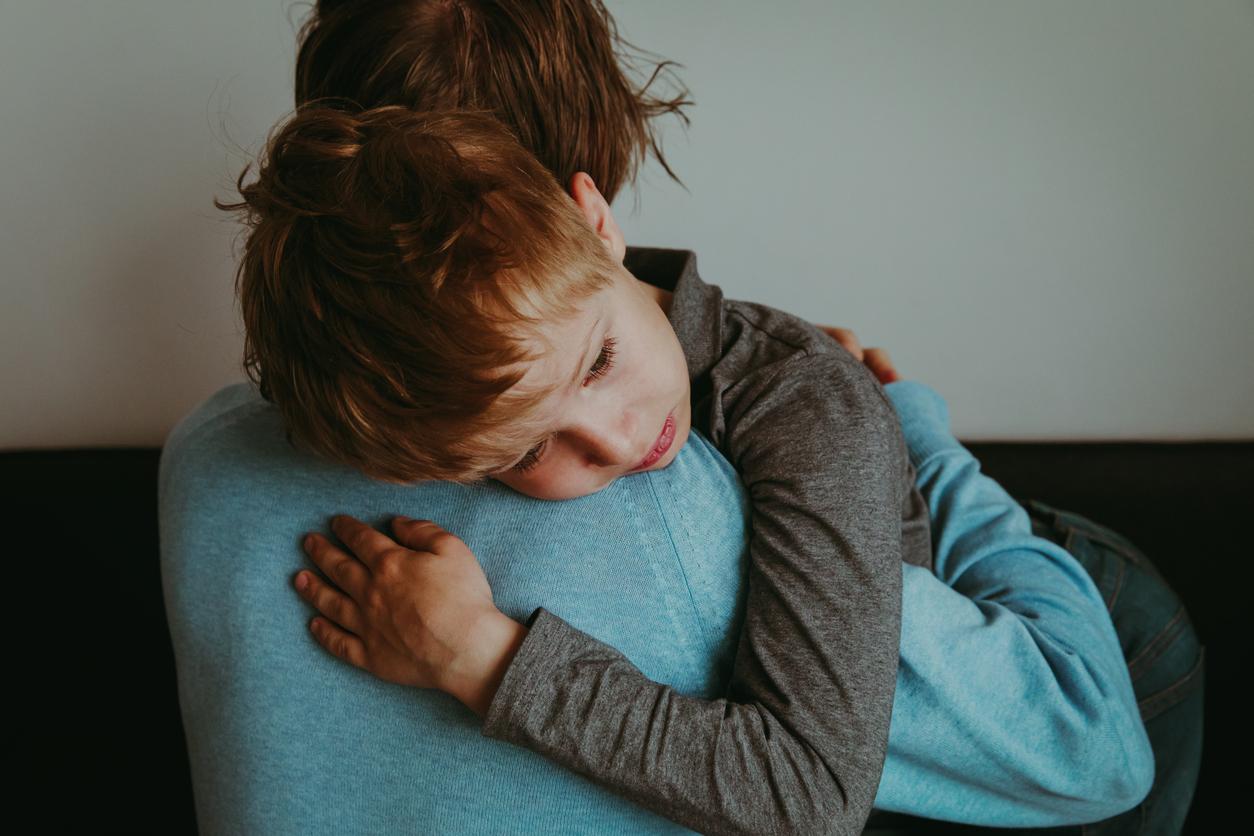In a video posted on Facebook, a mother recounted how the specialized establishment where her son is educated refused to take him back full time after a severe epileptic seizure. His testimony aroused immense mobilization.

“I thought my son had rights? But a priori when you are disabled, the rights you do not care a little, a lot anyway!”. It is with these words that Coralie Cambelin, a resident of Bully-les-Mines in Pas-de-Calais, tells, in tears, the story of her little boy Oscar, six years old, rejected from his school after a crisis of severe epilepsy. The video, posted Thursday May 24 on Facebook, has been shared more than 100,000 times and garnered media attention, prompting the offending establishment to reconsider its position.
“Last Tuesday, Oscar had a crisis at the institute of motor education (IEM) Sévigné of Béthune where he is educated, a crisis which required rescue”, begins Coralie in this video of more than four minutes shot in her car. “Since then, the structure has forbidden me access. Has forbidden access to my child. Oscar did not go to school for the week and did not receive the care including a disabled child needs, ”she continues, her voice choked. “They cannot put it out because, legally, they do not have the right but they reduce the reception time, they take it once a week”, she explains.
“What do I say to my six-year-old when he asks me to see his friends?” Asks Coralie, for whom “Oscar has the right to have the life of a six-year-old boy”. “Obviously, I will not stop there, I will fight so that Oscar can return to his structure or another structure”, she announces, admitting however to be “completely headed”. “I do not know where to start,” she concludes annoyed.
A video viewed more than 2.9 million times in 48 hours
Fortunately for her, the support of Internet users was immediate. Forty-eight hours after posting her video on Facebook, Coralie was immensely surprised to discover that it had been viewed more than 2.9 million times and shared by over 100,000 Internet users, each more encouraging than the next. . “Good luck, open a page to sign a petition,” suggests a user. “I send you Strength and Love !! All my support,” wrote another. “But what a shame! Courage! Do not give up, even if to say that it is hard is still far from the account! What are the social services saying? You will get there! Namaste”, is scandalized one last.
Contacted by The voice of the North, the young woman admits to being very surprised by all this support. “It feels a lot of good to feel supported like that. I didn’t expect to be seen so much. But it’s also scary because I got naked, I was completely lost,” she confides. And the mobilization did not take long to pay off since thehe management of the Béthune Motor Education Institute immediately agreed to see Oscar’s family again to find a solution. The establishment, which, on his website, said to offer “care for children and adolescents subject to significant motor impairment in order to support them in their family, social and professional integration”, then asked for help at the Regional Health Agency (ARS) and at the Departmental House of Handicapped People (MDPH), to welcome the child more than one day a week, while waiting for a lasting solution in another IEM (where Coralie’s request has been on standby for over a year, according to France Blue North).
“Better welcome Oscar”
From Friday, Oscar was able to find his friends. “It is with great joy that I can announce that Oscar is at IEM this morning! We saw the management this morning, we are trying to renew the dialogue! My son has rights and I intend to do them respect … Thank you all “, announced the mother on social networks by posting a photo of her son at the entrance of the school.
“We are really looking for a solution. Monday morning, I see the parents again. We will try to build together something to better welcome Oscar”, promised Marc Witczak, director of the IEM Artois pole, which manages the institute from Béthune, to The voice of the North at the end of last week. “But you should also know that we made a proposal for Oscar to be hosted at the IEM in Liévin, which has greater medical supervision. The parents refused this solution. I respect the family’s choice,” explains Marc Witczak at the microphone of France Bleu. “We don’t want to get rid of it at all. We don’t close the door. We continue to welcome it. We just want to do it in the most secure way possible”, he explains again, recalling that “the danger is great when there are no medical personnel around”.
A drug-resistant and unstable disease
Because if the story of Coralie and her child may be shocking, the concern of the Sévigné establishment in Béthune makes sense. Indeed, without a medical body to treat a seizure, severe epilepsy can lead to the death of the patient. It is the most serious form of epilepsy, a neurological disease resulting in abnormal functioning of brain activity, since it is drug-resistant and not stabilized. So when a person has a severe epileptic seizure, it is completely impossible for them to mobilize the skills to call for help. And the longer the seizures and the closer together, then there are the risks of neurological damage.
Fortunately, severe epilepsy does not concern the majority of the 500,000 French people with epilepsy: in 70 to 80% of cases, this disease is treated with anticonvulsant drugs to eliminate or reduce the frequency of seizures. The latter manifest themselves in very different ways for each patient and not all of them result in sudden loss of consciousness. For example, the person concerned may have absences during which they lose contact with those around them, have abnormal movements (chewing, rotation of the head and eyes, etc.), involuntary muscle contractions or hallucinations. sensory.
Thus, even if it does not always jeopardize the patient’s vital prognosis, the disease often has very negative consequences on his quality of life. People suffering from epilepsy often have academic difficulties and, as they age, are prohibited from many trades. An exclusion which often causes depression. In severe epilepsy, the prevalence of depression is even 50% of patients, according to figures from the French Foundation for Epilepsy Research.

.














